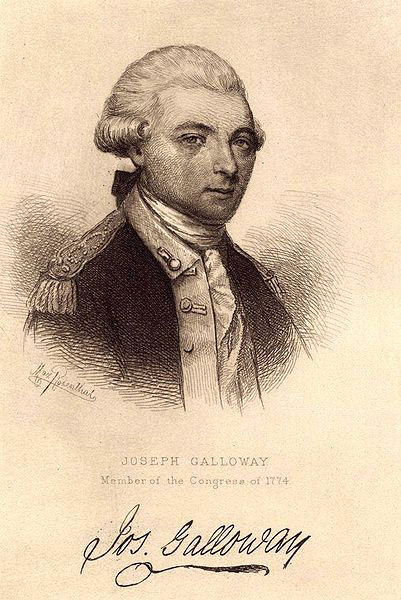 Americans take great pride in the Revolutionary War which threw off the chains of the British government and established the United States as a free and independent nation. Our greatest patriotic heroes are those that fought bravely with the rag-tag Continental Army which bested the forces of what was then a world military super power, the British Empire.
Americans take great pride in the Revolutionary War which threw off the chains of the British government and established the United States as a free and independent nation. Our greatest patriotic heroes are those that fought bravely with the rag-tag Continental Army which bested the forces of what was then a world military super power, the British Empire.
But not every American in those days supported the Revolution – in fact, much of the American colonies were divided in their loyalties between Britain and those that wanted to break free. Even Benjamin Franklin, one of the greatest of the Founding Fathers, counseled staying loyal to the Crown for a long time before he eventually sided with the movement for Independence.
Loyal to the British Rule
One prominent and highly respected American who remained loyal to the British was Joseph Galloway, born in Maryland in 1731. Before the war, Galloway was the first delegate to the Continental Congress from Pennsylvania. He had a distinguished career as a lawyer, and was a member of the prestigious Pennsylvania Provincial Assembly, where he was Speaker of the House.
As the rumblings for war and independence heated up, Galloway understood the desire of his fellow Americans to rid themselves of the harsh, dictatorial, exploitive, and tax-heavy rules of the British, but he did not feel that a full-blown revolution was the best course. Instead, he favored a compromise plan in which the Crown would adopt a more hands-off policy toward its American colonial holdings, to allow local citizens greater independence and control of their own taxation structure – yet still remain loyal to the Crown.
When push came to shove, Joseph Galloway was forced to make what must have been an agonizing decision. He had to choose loyalty to the British Empire, or throw in with those who wanted to break away from England, even if it meant a bloody shooting war. Galloway choose to remain loyal to England – which sealed his fate, costing him everything he owned, his reputation, his land holdings, and his accomplishments as an American colonist of prestigious standing.
Military Service
Galloway not only sided with Great Britain, but went on to serve under the British General William Howe. When Howe captured the city of Philadelphia, Galloway was appointed Superintendent of Police. As such, he was charged with keeping the peace in the nation’s capital, now occupied by a foreign army. In his role as Superintendent, Galloway distinguished himself as an extremely efficient administrator. However, he frequently irritated his British masters by interfering with military affairs. Galloway was also highly critical of the British decision to later abandon Philadelphia, but he still chose to move with General Howe to serve under him in New York.
Remembered as a Traitor
In the end, after the war was lost Galloway was considered a traitor and guilty of high treason. He was forced to abandon all of his land holding and wealth, and flee to England, where he was welcomed as a loyal subject. He lived out the rest of his day in exile, and died in Watford, England, in 1803 at age 72.
History may view Joseph Galloway, and men like him, as traitors, but one should remember that not everything seemed as clear-cut as they do today with the benefit of hindsight. Galloway certainly loved his native America – it was just that he favored a compromise approach over violent revolution. In the end, he was forced to throw in with one side or the other. From an American standpoint, he chose the wrong side.